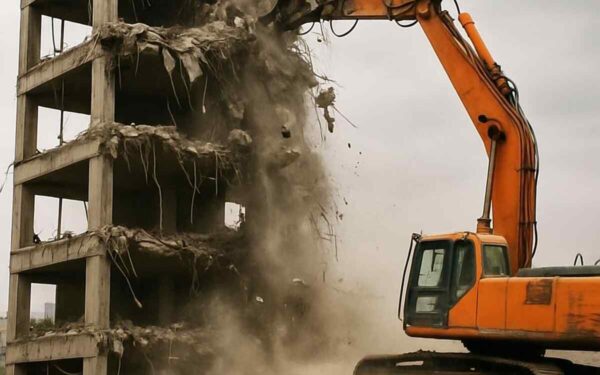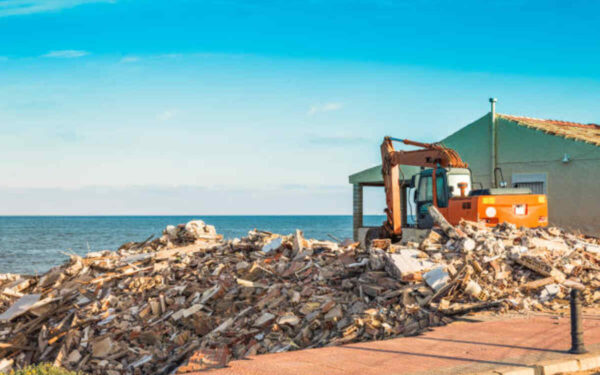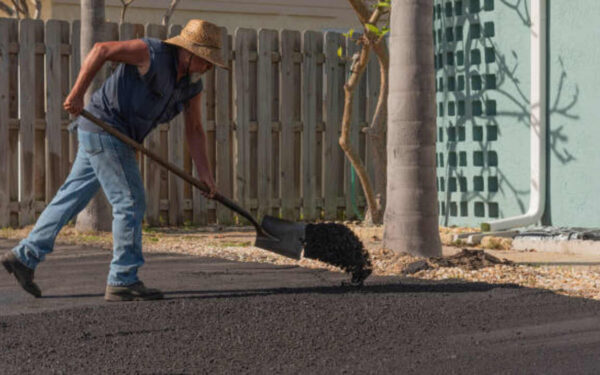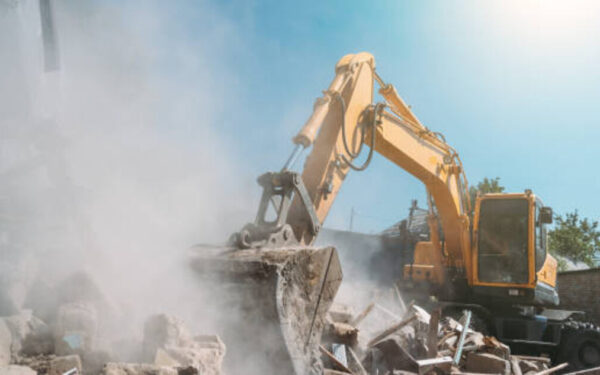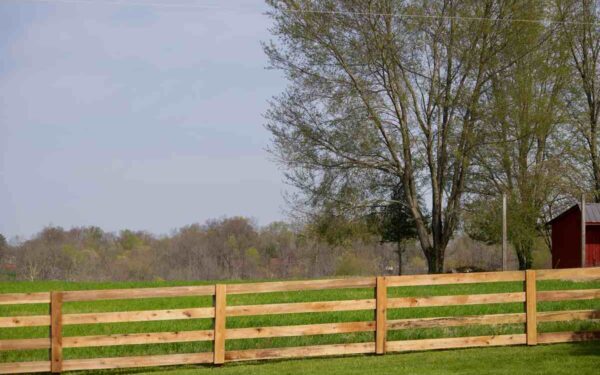Cost Factors for Demolition Projects in Albuquerque
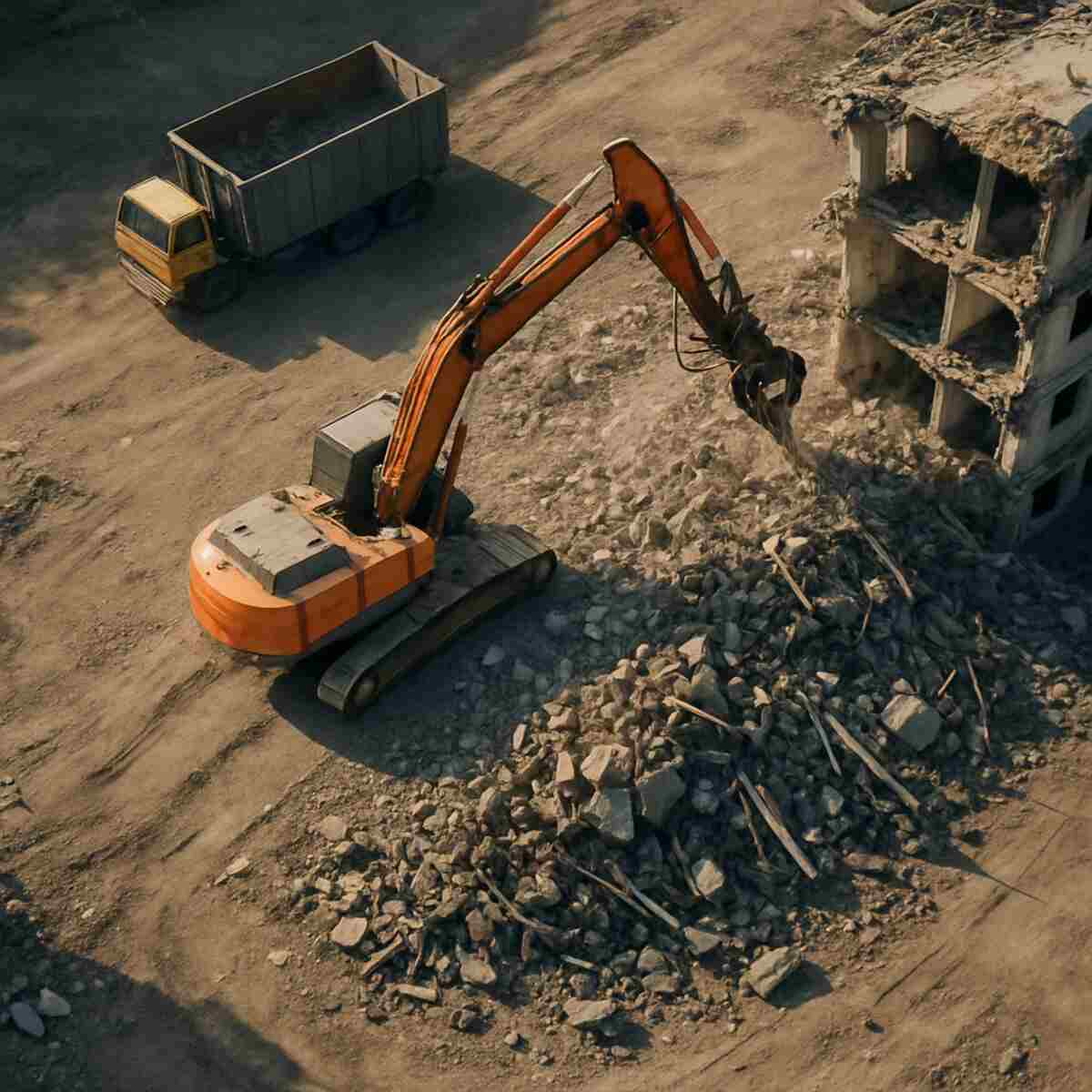
Hey there! Ready to dive into the world of demolition projects in Albuquerque? Whether you’re just curious or planning a project, understanding the cost factors involved can save you both time and money. Let’s break it down into simple steps, making it as easy as pie to grasp all the ins and outs. Get the Best information about albuquerque demolition service.
Before jumping into the costs, let’s chat about what demolition really is. In the simplest terms, demolition is the process of tearing down buildings or structures. It can range from small residential projects to large commercial endeavors. In Albuquerque, demolition projects are influenced by various factors that can significantly impact the overall cost.
The Purpose of Demolition
Demolition isn’t just about destruction; it’s often the first step in a new beginning. Whether you’re clearing space for new construction or removing unsafe structures, understanding the purpose can help align your budget and expectations. Demolition can also pave the way for urban renewal, transforming outdated areas into vibrant communities.
Environmental Considerations
Modern demolition projects prioritize environmental sustainability. This involves recycling materials like concrete, metal, and wood, reducing landfill waste. Understanding how a demolition project impacts the environment can also affect costs, as eco-friendly practices might require additional resources or planning.
Types of Demolition
- Selective Demolition: This involves removing specific parts of a building rather than bringing down the entire structure. It’s often used in renovations where preserving certain elements is crucial. By focusing only on necessary areas, selective demolition can be more cost-effective and less disruptive.
- Total Demolition: As the name suggests, this is the complete takedown of a structure. It’s common when the building is beyond repair or a new construction is planned on the site. Total demolition might involve more straightforward planning but requires substantial resources and a thorough understanding of the site.
- Implosion: A highly specialized demolition method involving explosives, typically used for large buildings or structures. Implosions are rare and complex, requiring precise planning and expert execution, which significantly impacts the overall cost.
Key Cost Factors in Albuquerque Demolition
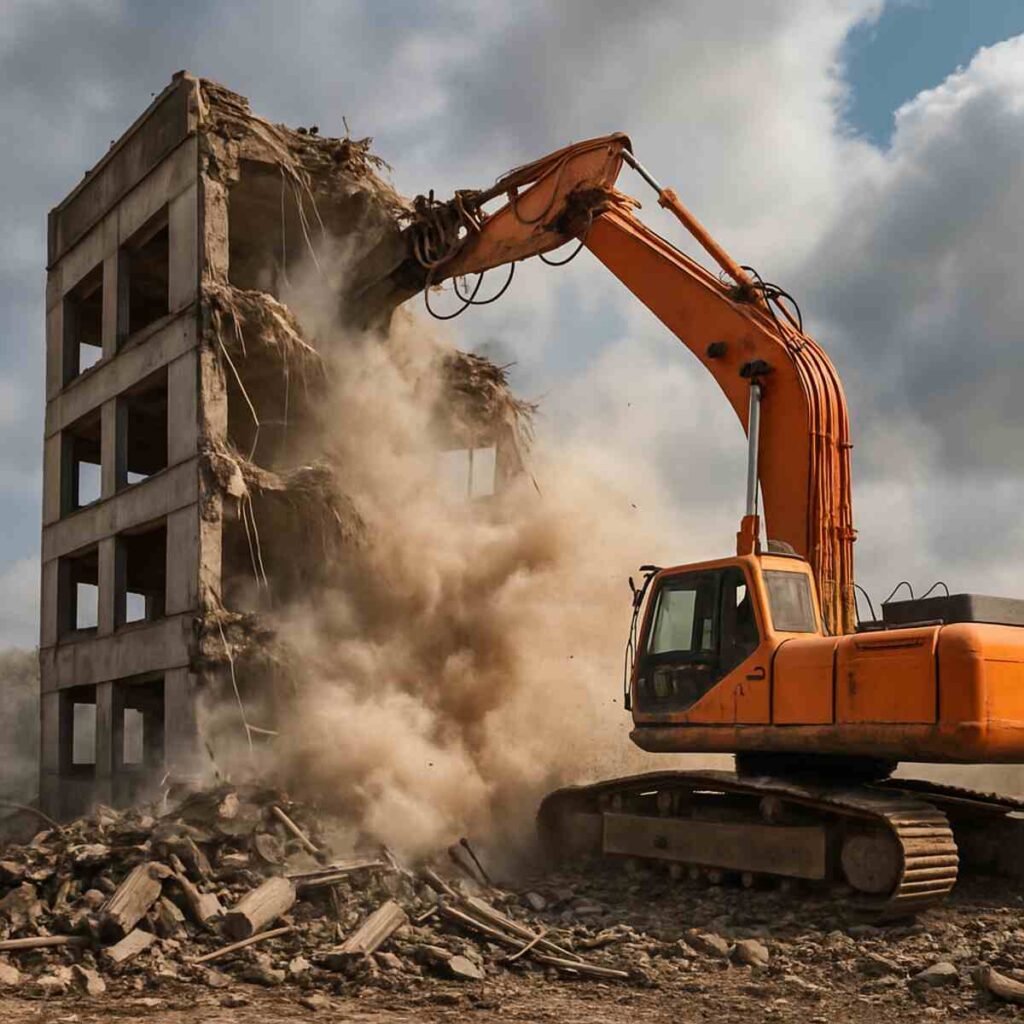
When planning a demolition project, several factors come into play that can influence the overall cost. Let’s break them down:
Size and Complexity of the Project
The size of the structure and the complexity of the demolition task are major determinants of cost. Larger buildings naturally require more resources, labor, and time, leading to higher costs. Similarly, complex structures with intricate designs may need specialized techniques and equipment, further driving up costs.
Structural Composition
The materials used in a building’s construction can affect demolition costs. Buildings with reinforced concrete or steel frameworks may require specific equipment and expertise, increasing labor and resource costs. On the other hand, simpler structures may be quicker and cheaper to dismantle.
Project Timeline
Time is money, especially in demolition. A tight deadline might necessitate additional labor or night shifts, increasing costs. Conversely, a flexible timeline can allow for cost savings, as contractors can schedule work during regular hours without incurring overtime expenses.
Location and Accessibility
In Albuquerque, the location of the building plays a significant role in determining the cost of demolition. If the building is in a densely populated area or has limited access, it might require additional planning and resources, increasing the project’s cost. Easy access can streamline the process and potentially reduce expenses.
Urban vs. Rural Demolition
Urban demolition projects often encounter challenges like traffic management, noise restrictions, and limited space for equipment. These factors can increase costs due to the need for additional coordination and resources. In contrast, rural demolitions might benefit from fewer restrictions but could incur higher transportation costs.
Site Preparation
Before demolition begins, the site must be prepared. This can include disconnecting utilities, setting up safety barriers, and clearing surrounding areas. Proper site preparation ensures safety and compliance but can also add to the overall budget.
Hazardous Materials
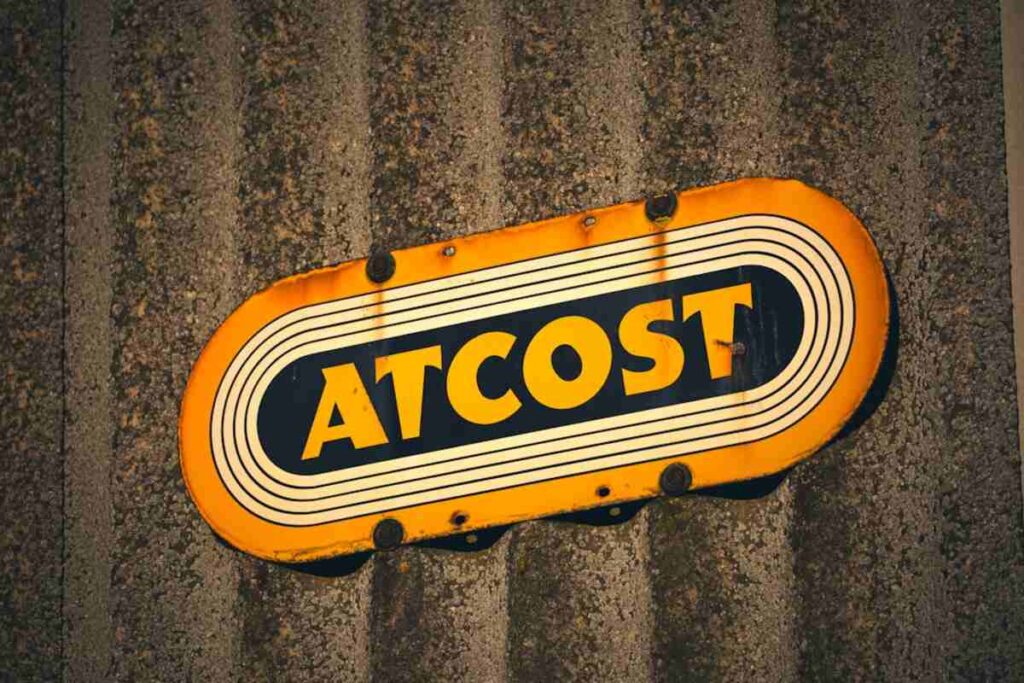
The presence of hazardous materials such as asbestos, lead, or mold can add a significant chunk to your demolition budget. These materials require specialized handling and disposal to ensure safety and compliance with regulations. If identified, you’ll need to hire experts to safely remove and dispose of them, which can be costly but necessary.
Identification and Assessment
Before demolition, a thorough assessment is needed to identify hazardous materials. This step is crucial in planning for safe removal and minimizing health risks. The assessment process itself can involve expert inspections and lab testing, which contribute to upfront costs.
Safe Removal Practices
Once identified, hazardous materials must be removed according to strict guidelines. Specialized equipment and trained personnel are required to ensure safety and compliance, adding to labor and equipment costs. However, these precautions are essential to prevent health hazards and potential legal issues.
Permits and Regulations
Before any demolition work begins, obtaining the necessary permits and adhering to local regulations is crucial. In Albuquerque, like many places, the cost of permits and compliance can add up. It’s essential to factor these into your budget to avoid any legal hiccups down the road.
Understanding Local Laws
Navigating the legal landscape of demolition can be complex. Understanding local zoning laws, safety regulations, and environmental standards is crucial. Non-compliance can lead to fines and project delays, making legal knowledge a key cost consideration.
Permit Acquisition Process
Securing permits involves paperwork, fees, and often inspections. The process can be time-consuming and may require the help of professionals to ensure all legal requirements are met. While this adds to costs, it is vital for a smooth, legally compliant project.
Choosing the Right Demolition Contractor in Albuquerque
Alright, so now you know the cost factors, but how do you choose the right demolition contractor in Albuquerque? Here are some tips:
Experience and Reputation
Look for contractors with a solid reputation and extensive experience in demolition projects. Check online reviews, ask for references, and ensure they’re licensed and insured.
Checking Credentials
A reputable contractor will have the necessary licenses and insurance. Verify these credentials to ensure they meet industry standards. This step not only safeguards your project but also provides peace of mind.
Client Testimonials
Past client testimonials can offer valuable insights into a contractor’s reliability and quality of work. Look for patterns in feedback to gauge their strengths and areas for improvement. This can significantly influence your decision-making process.
Transparent Pricing
A reliable contractor should provide a clear and detailed estimate of the costs involved. Be wary of any hidden fees or vague pricing structures.
Detailed Quotations
Request a detailed quotation outlining all potential costs, from labor to equipment to disposal. This transparency helps in budgeting and avoiding surprises. A clear understanding of costs also facilitates better planning and resource allocation.
Negotiation and Flexibility
Don’t hesitate to negotiate terms and prices with contractors. Many are willing to adjust costs based on project specifics or timelines. Flexibility in discussions can lead to more favorable terms and potential savings.
Equipment and Safety
Ensure the contractor has the necessary equipment and adheres to safety standards. Safety is paramount in demolition, and cutting corners could lead to accidents and additional costs.
Equipment Capabilities
Modern equipment can make demolition more efficient and safer. Ensure your contractor has access to the latest tools and machinery. Advanced equipment can also minimize disruptions and reduce labor time.
Safety Protocols
Safety should be a top priority for any demolition contractor. Confirm they follow strict safety protocols and have a record of safe operations. This not only ensures worker safety but also helps prevent costly accidents and project delays.
Demolition Derby: A Fun Twist in Albuquerque
While we’re on the topic of demolition, did you know Albuquerque hosts demolition derbies? Yep, these events are all about vehicles crashing into each other until only one remains drivable. It’s a fun and thrilling experience for spectators, adding a unique twist to the concept of demolition.
What is a Demolition Derby?
A demolition derby is a motorsport event where drivers crash their vehicles into each other until only one remains operational. These events are popular for their high-energy entertainment and competitive spirit. In Albuquerque, they attract large crowds and create a festive atmosphere.
Local Demolition Derby Scene
Albuquerque’s demolition derby scene is vibrant and well-organized. Local clubs and organizations host regular events, drawing participants and spectators from across the region. These events often feature themed competitions and community activities, enhancing their appeal.
Cultural Impact
Demolition derbies offer more than just entertainment; they foster community spirit and local culture. They provide a platform for enthusiasts to showcase their skills and creativity. Additionally, they contribute to the local economy by attracting tourism and creating business opportunities.
Wrapping It Up
So there you have it, the key cost factors for demolition projects in Albuquerque broken down in an easy-to-understand way. Whether you’re taking down a small shed or a large building, understanding these factors can help you plan your project effectively and avoid unexpected costs.
Remember, the right preparation and choosing an experienced contractor are crucial to a successful demolition project. And if you’re ever in the mood for some light-hearted demolition action, check out a local demolition derby for some smashing fun!
Planning for Success
Successful demolition projects start with thorough planning. From budgeting to contractor selection, every step requires careful consideration. By understanding cost factors and potential challenges, you can ensure a smoother project execution.
Continuous Learning
The demolition industry is constantly evolving with new technologies and regulations. Staying informed about these changes can help you make better decisions and optimize project outcomes. Consider joining local industry groups or online forums to stay updated.
Enjoy the Journey
While demolition can be complex, it also offers exciting opportunities for growth and renewal. Embrace the journey, learn from each project, and enjoy the transformation process. Happy demolishing!



